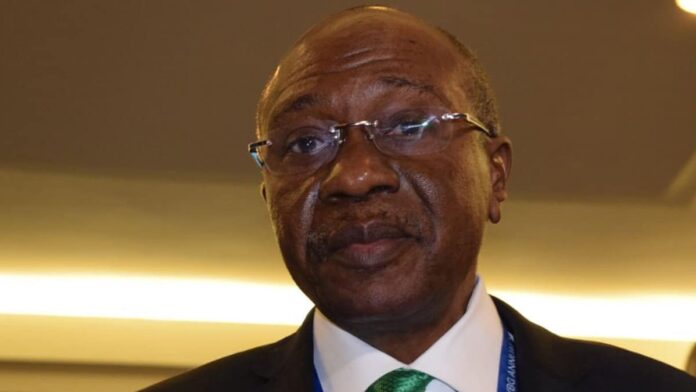External Reserves Dip to 9-Month Import Coverage
Nigeria’s external reserves still cover about nine months of imports amidst macroeconomic uncertainties that have reduced government revenue performance. The nation’s FX reserves have fallen below $38 billion, without the possibility of a flood of foreign currencies inflow from export receipts.
Lower oil production volume weakened the amount of inflows from the oil exports while hot monies have reduced strongly as foreign investors do not find the local economy interesting.
The naira rate has worsened over Nigeria’s lack of comparative productive advantage despite citizens’ untamed tastes for foreign goods and services – thus having negative effects on exchange rates across the market.
Analysts, however, think the FX reserve is strong enough to battle market speculators but the level of intervention has been weak and intermittent. In the foreign exchange market, the naira has continued to lose weight to pressures emanating from higher demand for the United States dollar and other major currencies.
MarketForces Africa reports that there is a criminal side to the worsening exchange rate in Africa’s largest economy by the size of gross domestic products (GDP); estimated at $450 billion – being 50% of failed vision 20:2020 $900 billion target.
From the beginning of the year to date, the Nigerian naira has lost weight across the FX market while a higher inflation rate figure in the country continues to worsen purchasing power.
A slew of analysts told MarketForces Africa via emails response that the local currency weakened due to a lack of healthy economic productive capability for export earnings.
The CBN has insisted on backing up the naira exchange rate in the FX market while the monetary authority struggles to achieve convergence in its multi-tiered exchange rates management policy.
Crude oil prices remained strong in the international market but Nigeria’s persistent failure to meet the Oil Production Exporting Countries (OPEC) and allies (OPEC+) quota continues to impact FX receipts.
MarketForces Africa gathered from Broadstreet analysts that relatively lower foreign currency inflows from oil exports have reduced the size of the buffer available for supporting the naira in the FX markets.
Last week, FX reserves lost 8.07 per cent or $3.27 billion in over 10 months to settle at $37.2 billion at the start of November from $40.52 billion at the beginning of the year, analysts said in a market note. READ: Bonds Yields Dip as CBN Rate on 364-Day T-Bills Rises
At the current level, Nigeria’s external reserves could cover about nine months of imports based on the balance of payments for the 12 months to June 2022, and 6.5 months when services are added, Cowry Asset Management said in a note.
The CBN capital control measure has forced foreign investors exits from the local economy, thus FX backlogs continue to rise. MSCI Index also threatened to downgrade Nigerian indexes, citing difficulties in foreign currency repatriation.
CBN has always maintained a culture of intervening in the various foreign exchange markets such as the investors and exporters (I&E), and the Secondary Market Intervention Sales (SMIS) windows.
Last week, Brent crude trades at above $96 per barrel following Beijing’s decision to ease its earlier imposed covid-19 restrictions. The oil price had peaked at $123 per barrel in June this year but Nigeria recorded little or no earnings from oil sales despite the rise, according to Cowry Asset Management note.
With record improvement in oil theft fighting, Nigerian Upstream Regulatory Commission said aggregate crude oil production -including condensates bucked three consecutive months of decline, increasing by 8.2% month on month to 1.23 million barrels per day (mbpd) in September from 1.14mbpd in August.
Analysts said the increase was primarily driven by the Forcados oil terminal as Shell Petroleum Development Company Limited resumed crude oil export at the terminal on 20 October after about three months of shutdown for essential repairs.
High production volume from Bonny, Brass and Escravos terminals were noted to have supported the higher crude oil production in the review period. However, the crude oil production remains significantly below the country’s OPEC+ quota of 1.83mbpd, reflecting lingering challenges. # External Reserves Dip to 9-Month Import Coverage












